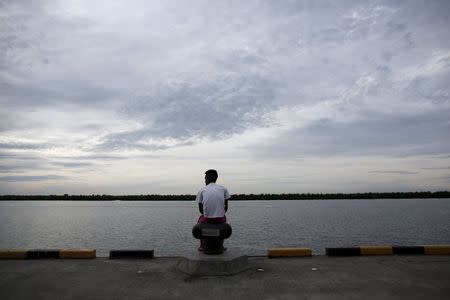No human trafficking camps left in Thai south, police say

By Amy Sawitta Lefevre BANGKOK (Reuters) - Thai police said on Monday there were no human trafficking camps left in southern Thailand following a month-long crackdown and the discovery of seven camps in mountainous jungle near the Thai-Malaysian border. The comments came hours after Malaysia's police said they had uncovered 139 graves thought to contain the remains of migrants from Myanmar and Bangladesh scattered around more than two dozen suspected trafficking camps near the border with Thailand. Earlier this month, 36 bodies believed to be of migrants from Bangladesh and Myanmar were found in Thailand's southern Songkhla province. Twenty-six of the bodies were discovered near an abandoned trafficking camp hidden deep in a jungle, very close to the border with Malaysia. That discovery triggered Thailand's crackdown on the camps and a regional crisis that has seen thousands of migrants abandoned by traffickers in the Bay of Bengal and the Andaman Sea. "Since we began our investigation, our big investigation, we have not found more graves or more trafficking camps apart from the ones already mentioned," Phuttichart Ekachan, deputy chief of Thailand's Provincial Police Region 9, told Reuters. "We're still looking for camps but we think there are no more camps on the Thai side." Thai police found seven human trafficking camps on Khao Kaew, which translates as 'Glass Mountain', in Sadao district in Songkhla Province, since May 1. Many of the camps were just a few hundred meters from the border with Malaysia. Southern Thailand and northern Malaysia have been a major route for smugglers and traffickers bringing people to Southeast Asia by boat from Myanmar and Bangladesh. Many say they are fleeing persecution and looking for better lives abroad. Phuttichart said Thai police were ready to help Malaysia with their investigation. "Thailand is ready to help Malaysia if Malaysia asks for our help," said Phuttichart. "But Malaysia has not yet asked for special assistance from us." (Additional reporting by Aukkarapon Niyomyat; Editing by Raju Gopalakrishnan)

